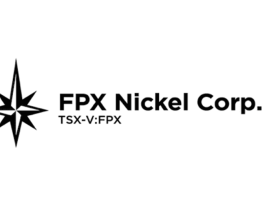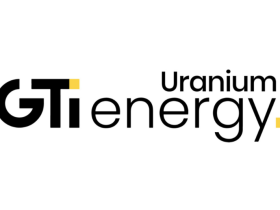The S&P/TSX Venture Composite Index (INDEXTSI:JX) climbed last week, increasing 3.62 percent.
Preliminary data shows Canada’s gross domestic product expanded by 0.4 percent in the month of May, indicating that the country’s economy regained some momentum during the second quarter. Experts now expect another rate hike in July.
In the resource sector, the gold price sank briefly below the US$1,900 per ounce mark last week.
Against that backdrop, a variety of TSXV-listed resource stocks made moves over the last five days. Read on to find out which companies rose the most during the period and what was affecting their share prices.
1. Starr Peak Mining (TSXV:STE)
Weekly gain: 53.66 percent; market cap: C$25.54 million; current share price: C$0.63
Starr Peak Mining is an exploration company whose projects — the NewMétal base metals project and the Rousseau and Turgeon Lake gold projects — are all in Quebec, Canada, along the Ontario border. The company is planning a drill program at NewMétal and closed a private placement aimed at funding that work in early May.
While it hasn’t shared any press releases since then, last Thursday (June 29), Starr Peak Mining released its financials and management commentary for the nine month period ended April 30 on SEDAR. Its share price peaked at the close of the trading day on Friday (June 30) after climbing throughout the second half of the week.
2. Trench Metals (TSXV:TMC)
Weekly gain: 47.06 percent; market cap: C$14.68 million; current share price: C$0.375
Uranium company Trench Metals is exploring the Higginson Lake and Gorilla Lake uranium projects, which are both located in the Athabasca Basin in Saskatchewan, Canada. The company has the right to acquire 100 percent interests in both.
Although it didn’t release news last week, on June 23 the company shared an overview of its 2023 prospecting program at Higginson Lake, which it says will “employ cutting-edge technology, utilizing state-of-the-art scintillometers.” The company’s share price climbed to a weekly high of C$0.405 during trading last Wednesday (June 28).
3. Power Metals (TSXV:PWM)
Weekly gain: 29.69 percent; market cap: C$65.82 million; current share price: C$0.415
Power Metals is focused on its Case Lake project, which hosts a pegmatite swarm containing cesium, lithium and tantalum mineralization. The company completed a high-resolution airborne magnetic survey and a LiDAR survey at Case Lake in May.
The next steps will be field-based prospecting and mapping programs, which the company said it was aiming to commence in late June. The company’s share price hit a weekly peak of C$0.51 last Thursday early in the trading day.
4. Ophir Gold (TSXV:OPHR)
Weekly gain: 29.33 percent; market cap: C$34.56 million; current share price: C$0.485
Ophir Gold is a lithium and gold company with options to earn 100 percent interests in the Radis lithium property in James Bay, Quebec, and the Breccia gold property in Idaho, US.
Ophir began its 2023 exploration at Radis in early June, but was only able to spend a day and a half in the field before it had to stop due to forest fires. However, the company reported last Thursday that the 11 samples it was able to collect during that time confirmed multiple spodumene-bearing pegmatite outcrops.
The company’s share price jumped on the news, and continued climbing through last Friday.
5. Japan Gold (TSXV:JG)
Weekly gain: 26.92 percent; market cap: C$36.96 million; current share price: C$0.165
Japan Gold has a portfolio of 34 gold projects across three of Japan’s islands. The company is in an alliance with Barrick Gold (TSX:ABX,NYSE:GOLD), and the two jointly conducted an evaluation of the large portfolio. Six projects were selected to proceed to the second evaluation phase, and Barrick is advancing those projects.
The two companies began exploration at the Mizobe project earlier this year, and last Wednesday announced that their framework drill program encountered wide, high-grade gold intervals. One highlight from the drilling was 10 meters grading 4.3 grams per metric ton gold, including 4 meters grading 6.2 grams per metric ton. Japan Gold’s share price hit a weekly peak last Thursday.
FAQs for TSXV stocks
What is the difference between the TSX and TSXV?
The TSX, or Toronto Stock Exchange, is used by senior companies with larger market caps, while the TSXV, or TSX Venture Exchange, is used by smaller-cap companies. Companies listed on the TSXV can graduate to the senior exchange.
How many companies are listed on the TSXV?
As of April 2023, there were 1,713 companies listed on the TSXV, 953 of which were mining companies. Comparatively, the TSX was home to 1,789 companies, with 190 of those being mining companies.
Together the TSX and TSXV host around 40 percent of the world’s public mining companies.
How much does it cost to list on the TSXV?
There are a variety of different fees that companies must pay to list on the TSXV, and according to the exchange, they can vary based on the transaction’s nature and complexity. The listing fee alone will most likely cost between C$10,000 to C$70,000. Accounting and auditing fees could rack up between C$25,000 and C$100,000, while legal fees are expected to be over C$75,000 and an underwriters’ commission may hit up to 12 percent.
The exchange lists a handful of other fees and expenses companies can expect, including but not limited to security commission and transfer agency fees, investor relations costs and director and officer liability insurance.
These are all just for the initial listing, of course. There are ongoing expenses once companies are trading, such as sustaining fees and additional listing fees, plus the costs associated with filing regular reports.
How do you trade on the TSXV?
Investors can trade on the TSXV the way they would trade stocks on any exchange. This means they can use a stock broker or an individual investment account to buy and sell shares of TSXV-listed companies during the exchange’s trading hours.
Data for 5 Top Weekly TSXV Performers articles is retrieved each Friday after market close using TradingView’s stock screener. Only companies with market capitalizations greater than C$10 million prior to the week’s gains are included. Companies within the non-energy minerals and energy minerals are considered.
Securities Disclosure: I, Lauren Kelly, hold no direct investment interest in any company mentioned in this article.
Securities Disclosure: I, Charlotte McLeod, hold no direct investment interest in any company mentioned in this article.





